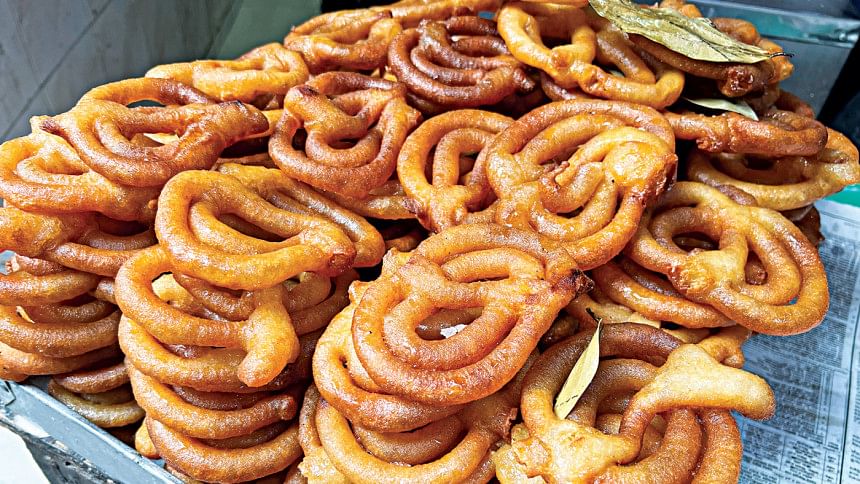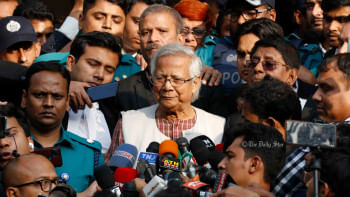Jalebi, Saree, Samosa: When did we become too good for Bangla?

"It just doesn't sit well in your mouth, ma."
My mom said, referring to a very simple Bangla word I used in our conversation as I was explaining the Jeffrey Epstein case to her: faash, the Bangla word for "expose".
She almost looked proud as she said it, proud that she feels her daughter has a bit of an American accent. Proud that a foreign, secondary language seemingly sounds more natural from my mouth than my own native language.
I don't blame her though. Asian societies in general tend to mimic Eurocentric cultures, albeit very selectively.
If we only consider a large part of our society's preference of English over Bangla, it is hard to pinpoint the exact moment this started. During the British Raj, going to study abroad or being fluent in English was a luxury only the wealthiest could afford and thus, these became symbols of class and status.
After 1971, Bengalis had an entire country to mould to fit their identity. Unfortunately, pre-existing societal notions led to people undermining their own culture and by the 1990s, English medium schools were being established all over the country and became affordable to many.
English is undoubtedly important. It is the universal language but because of our over-emphasis on the language, Bangla is often neglected in English medium school curricula at best and openly denounced at worst. As a student of that system myself, the number of times I have heard of schools berating students for speaking in Bangla within school premises is alarming.
This discouragement and neglect of Bangla only fosters the same sense of cultural inferiority in students' minds and ultimately leads to many dismissing Bangla as being too hard or simply "uncool". I have even heard excuses like, "Well, I won't need Bangla in my professional life."
What hurts more than this detachment of the youth from our culture and language is perhaps the youth's attempt in distorting it to fit with Eurocentric standards. Common Bangla words are now replaced by their Hindi counterparts because those words are better known to the Western audience.
Culture and language are ever evolving, yes. Bangla does have words of various languages from all over the world, yes. However, those words came in organically to make the language more adaptable and widen its vocabulary and not whitewash it or mutate it to appease people's need to conform to standards of other cultures.
There is still hope, though. Hope is perhaps what has kept this nation standing after centuries of foreign rule and as we finally hold our future in our own hands, it is important for us to break free from the shackles put on our minds, our pride.
Bangla is not inferior to English, Hindi, or Urdu. We are good enough and it is about time we restore our heritage and language instead of "diversifying" it to a point it is not even itself anymore.
Fabiha Afifa is secretly a Lannister noblewoman and a Slytherin alum. Pledge your allegiance/soul to her at [email protected]

 For all latest news, follow The Daily Star's Google News channel.
For all latest news, follow The Daily Star's Google News channel. 




Comments